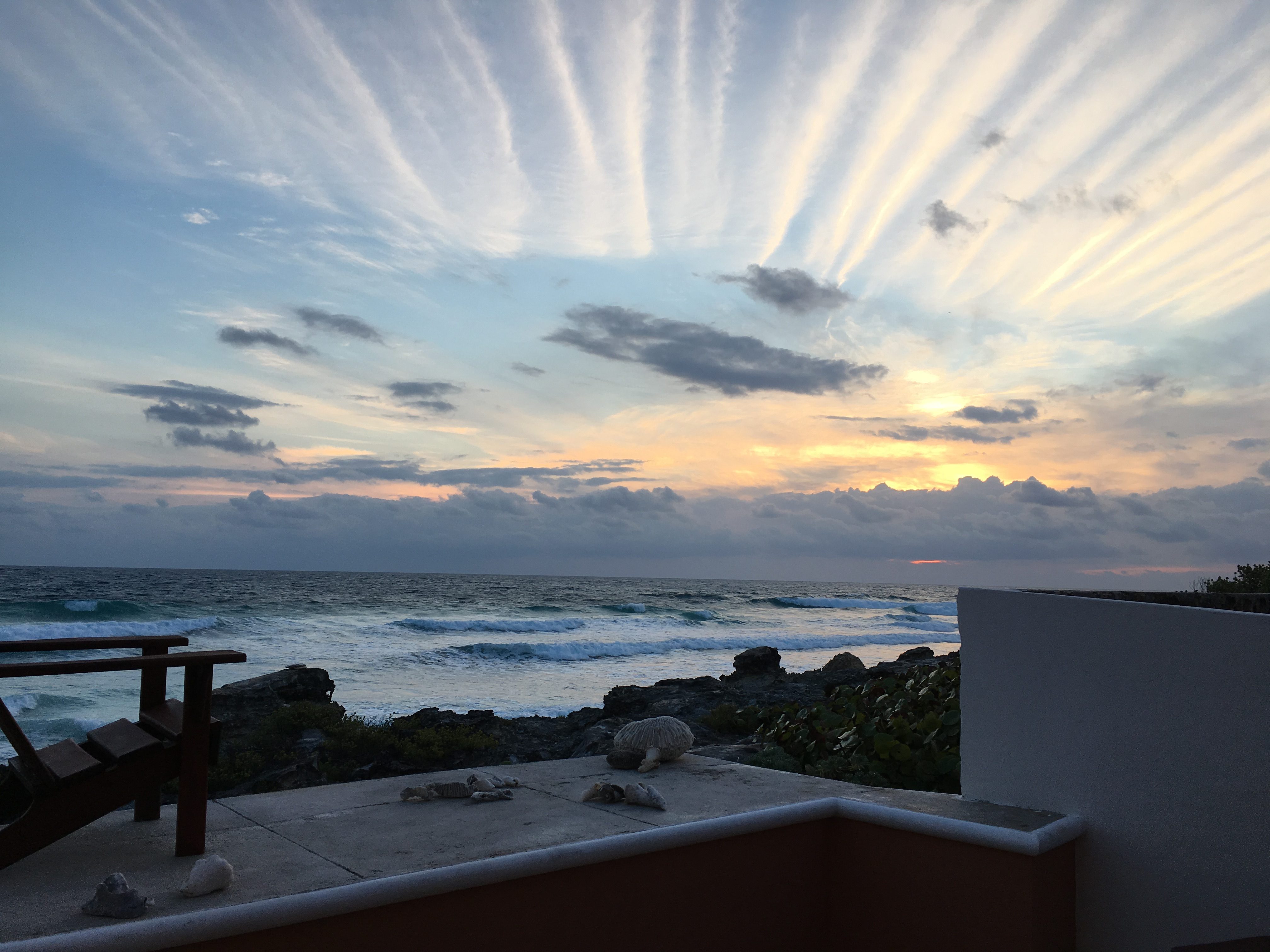
Last week I was away with family in Mexico and got to do some open water swimming (SO much nicer than laps in the pool) and running. As per usual, I have returned with a cautionary tale. This one is about hydration.
Of course we hear it everywhere, how important it is to hydrate when you’re working out—especially if you’re exercising in the heat. What I didn’t realize was that not hydrating enough can have a cumulative effect. It can catch up to you without you having any idea that your body is suffering—and when it hits at full force, you’d better watch out.
I had done some speed work on the roads one morning. I’d left a little later than I should have—meaning it was about 30 degrees out, plus humidity—and I’d probably worked harder than I should have. I was hot by the time I got home, but I drank some water and thought nothing of it.
What I needed to do was drink about ten times the amount that I did, and to keep drinking throughout the day—but I didn’t. It never even occurred to me. I felt fine.
The next day was Friday, my day off. Still felt fine. I went walking in the heat and still didn’t drink enough water. And then, out of the blue, I started to feel strange—like ‘I’m going to collapse, there’s something REALLY wrong with me’ strange. Turns out I had heat stroke.
If this had happened in the middle of a race, I would have been done.
Luckily I’d just picked up my daughter and two of her friends at the ferry terminal. All three of them are doctors. At first they thought I was joking around. When they understood I was serious, they made me sit down somewhere cool, and drink and drink and drink. It all ended well. But it shook me up and made me realize I am far too nonchalant about the amount of water I drink in a day.
Most of us will probably be racing in conditions where heat is a factor, so hydration is a major concern. Heat stroke is something that really shouldn’t happen. It is totally preventable, but you need to be thinking at all times about what you’re consuming and you can’t wait for your body to tell you that you’re thirsty. By then, it’s probably too late.
When I looked up some guidelines on hydration, I discovered it’s a controversial topic. Many athletes have taken the drink drink drink mantra so seriously that there is now the possibility of over-hydration.
I suspect this is, like most things, an individual issue that is best worked out in training. We’re all different. We all tolerate things like heat and dehydration differently. Experimenting with hydration and electrolyte intake, and training in the heat, are probably the best ways to determine what kind of fluid intake will best serve you.
An easy way to keep track of how well you’re doing with hydration is to pay attention to the colour of your urine. If it’s pale yellow, you’re where you should be. If it’s clear, you are over-hydrating. If it’s darker (the colour of apple juice), you’re not drinking enough.
In any case, this experience has left me gun-shy. I don’t want to be one of those people who gets pulled off the course because of dehydration. Or worse. Heat stroke can have serious consequences. Triathletes tend to think they can muscle through most things, but this is not one of them. Listen to your body. If you start feeling dizzy or weird, stop. Get into the shade. Sit down. Drink.
Happy New Year, and happy training!